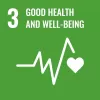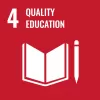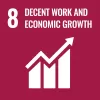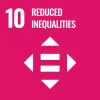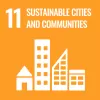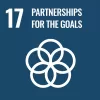With the pandemic, more than ever before, we understand the importance of managing expectations and looking after our mental well-being. As an organisation with the motto of "students helping students", we want to promote discussions that can help us become more conscious, wiser, healthier, and emphatic!
In this informal debate, we aimed to debunk the "myth of the perfect Erasmus", in order to both promote mobility among Portuguese students and give current Erasmus students a platform to share about how it felt to do mobility during Covid-19. We also aimed at raising awareness for the need to look after yourself mentally while in mobility and fighting the social stigma surrounding Erasmus and living abroad, through discussion sharing tips to help both these audiences manage expectations and make the best of their current and future experiences.
When discussing about mental health, Erasmus, and inclusion, the team came to the conclusion that the idea of "perfect Erasmus" experiences can be a very dangerous one, and that there is not enough discussion about the things that can go wrong and how to embrace them.
International mobility is often described as the best time in one's life but that can look very different for each person, and the way we perceive our own experiences can deeply impact mental well-being. Thus, for Social Inclusion Days, Erasmus Student Network Porto hosted an informal debate around expectations and international mobility... Because neither life nor Erasmus always goes according to plan, and that's ok!
We talked about present, past, and even future experiences, with live interaction dynamics, testimonies from a student who faced depression in (and after) Erasmus, ESNers who had very different mobility experiences or never had one at all and lively discussions in groups and plenary. Also, to make sure we did not just discuss but also gave the participants some knowledge, one of our ESners, who has an MsC in Clinical Psychology, shared some insights and general proposals for expectations management, as well as contacts and tips on how to find professional help. Following participants' requests, these resources were later shared by email as well.
The event gathered a nice mix of former, current and potential Erasmus, which allowed for a rich and insightful event, that surpassed our expectations in sign-ups (over 60) and duration (it went on for over and hour longer than expected). We aim at making this a regular event as all participants were extremley positive about it, spoke about how much they had felt the need of a place to vent and speak about the reality of Erasmus beyond the advantages and fun of it. Also, we were complimented on bringing up mental health and a few people even shared their personal stories in this, which reinforced our belief in the need to bring it up more often and also creating appropriate spaces for such discussions.
